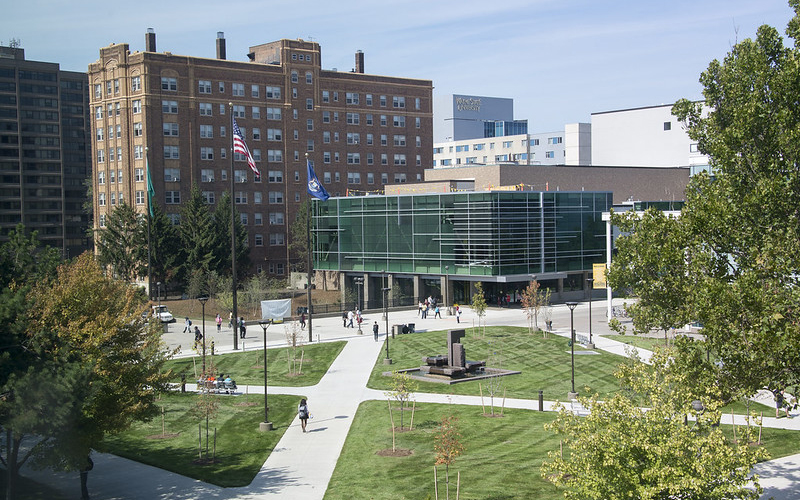
Wayne State University in Detroit has announced its Office of Economic Development’s 2022-2027 economic impact strategy, which follows the January release of the university’s strategic plan.
The economic impact strategy will guide the university’s $2.4 billion annual economic impact over the next five years.
The strategy is inclusive of work happening across schools, colleges, and divisions at Wayne State and is organized around five high-level goals. The Office of Economic Development will lead university efforts to make, monitor, and communicate progress toward the goals which include:
- Preparing a diverse student body for and connecting them to good, household-supporting jobs.
- Ensuring all WSU jobs are household-supporting jobs and accessible to a diverse workforce.
- Leveraging WSU’s purchasing power, research enterprise, and entrepreneurship programs to create more household-supporting jobs and wealth building opportunities, especially for Detroiters and people of color.
- Retaining and attracting talent through investments and programs that improve quality of life in the neighborhood, city, and region.
- Being a thought leader on and active partner in equitable economic development.
Through this strategy work, WSU seeks to move the needle on external metrics like the percentage of individuals with a post-secondary credential or degree in Detroit and Michigan, labor force participation rates, and the percentage of individuals earning above United Way ALICE and DFC median wages. It also seeks to decrease racial and geographic gaps, including those between Black and white Detroiters and Detroit and the region.
The report states: “Wayne State has the opportunity to be both an employer of choice for top talent from across the globe and a vehicle for economic opportunity and social mobility in Detroit, which has the lowest labor force participation rate of any city in the U.S. and an annual median income of approximately $34,000 (less than half-that of our region).”
It’s stated goals to solve this problem are as follows:
- Recruit and hire diverse candidates and Detroiters.
- Provide all employees with training and opportunities for advancement within WSU.
- Offer benefits that attract talent and support existing employees.
- Provide students with meaningful on-campus work experiences that advance their careers.
- Strengthen connections to Detroit and Michigan workforce agencies and initiatives.
Wayne State established the Office of Economic Development in 2011 to lead economic development strategy and became one of the first universities in the nation to be recognized as an innovation and economic prosperity (IEP) University in 2014 by the Association of Public and Land-Grant Universities (APLU) — a designation honoring higher education institutions that have demonstrated a commitment to economic engagement.





